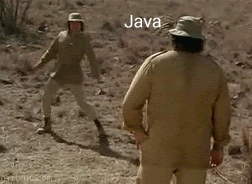
Read time >5min
C++ is a member of the C programming language family. Like Python and Java, C++ is a fast, efficient, object-oriented language with a wide variety of use cases.

This article has multiple issues. Please help improve it or discuss these issues on the talk page. (Learn how and when to remove these template messages) Some of this article's listed sources may not be reliable. Please help this article by looking for better, more reliable sources. Unreliable citations may be challenged or deleted. (September 2010) (Learn how and when to remove this template message) This article may be unbalanced towards certain viewpoints. Please improve the article by adding information on neglected viewpoints, or discuss the issue on the talk page. (May 2016) This article may contain excessive or inappropriate references to self-published sources. Please help improve it by removing references to unreliable sources where they are used inappropriately. (September 2010) (Learn how and when to remove this template message) This article possibly contains original research. Please improve it by verifying the claims made and adding inline citations. Statements consisting only of original research should be removed. (August 2012) (Learn how and when to remove this template message) This article may require cleanup to meet Wikipedia's quality standards. No cleanup reason has been specified. Please help improve this article if you can. (February 2011) (Learn how and when to remove this template message) (Learn how and when to remove this template message)
Both Java and C++ have been in production for years. They both have similar syntax, and they both power some of the biggest enterprise platforms on the market. As a matter of fact, most C++ programmers will tell you that converting to a Java project is easy for them since style and syntax are very similar.

Conceptually and functionally, an array is a collection of variables that are accessed through a common name. Individual variables, called elements, within the array are selected by an index or a subscript. Arrays have a size, which is determined when they are created. Valid index values range from 0 to the size of the array - 1. All of the variables in the array must be the same data type (e.g., int or double). The following illustration demonstrates how arrays are created in Java and C++, and provides an abstract representation or mental model of an array.

This website or its third-party tools use cookies, which are necessary to its functioning and required to achieve the purposes illustrated in the cookie policy. If you want to know more or withdraw your consent to all or some of the cookies, please refer to the cookie policy. By closing this banner, scrolling this page, clicking a link or continuing to browse otherwise, you agree to our Privacy Policy
The Tiobe Index this month has both languages plunging to depths they've never reached before. "Java and C++ are at an all-time low in the Tiobe index since its start in the year 2001. This doesn't necessarily mean that Java and C++ are on their way out. There is still a huge demand for these programming languages," Tiobe says. Based on a formula that analyzes searches on languages on a number of sites, Java's rating in the September index was 14.14 percent; C++ had a rating of 4.67 percent. Overall, Java ranked second in popularity, while C++ came in fourth.
Since performance optimizing is a very complex issue, it is very difficult to quantify the performance difference between C++ and Java in general terms, and most benchmarks are unreliable and biased. Given the very different natures of the languages, definitive qualitative differences are also difficult to draw. In a nutshell, there are inherent inefficiencies and hard limits on optimizing in Java, given that it heavily relies on flexible high-level abstractions, however, the use of a powerful JIT compiler (as in modern JVM implementations) can mitigate some issues. In any case, if the inefficiencies of Java are too great, compiled C or C++ code can be called from Java via the JNI.





1 Comments
Hiiii
ReplyDeleteif you have any doubuts,Please let me know